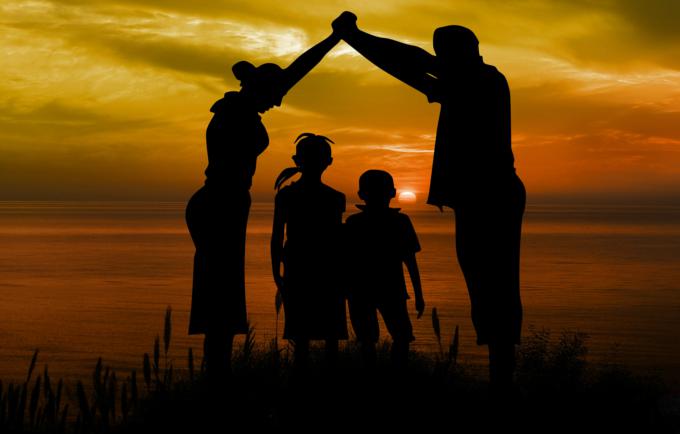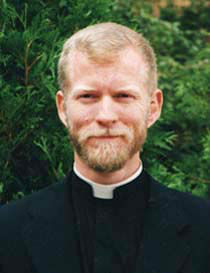
Culture
Notwithstanding rapidly changing social mores, a truly civilized society will never prioritize the desires of adults ahead of the innate rights of vulnerable children.

Pacholczyk
Children require extensive support and protection to meet their physical, emotional, and spiritual needs. They are uniquely dependent on their parents because they are particularly vulnerable. Often they are unable to speak on their own behalf or effectively defend themselves from various forms of exploitation.
Considerations like these provide the basis for acknowledging the reality of "children's rights." Providing an appropriate family environment, with the presence of both a mother and a father, has long been recognized as one of the paramount examples of fulfilling children's rights. A proper family environment offers essential safeguards for a child, and helps assure the "full and harmonious development of his or her personality" -- to borrow a phrase from the 1990 United Nations Convention on the Rights of the Child.
Such "full and harmonious development," however, is becoming more difficult to secure for many children in part due to a growing societal acceptance of powerful new assisted reproductive technologies that can isolate children and deprive them of critical parental and family supports during their childhood. Children brought into existence using anonymous donor sperm and artificial insemination, to consider one example, often struggle with a sense of violation as they end up spending years or even decades searching for information about their biological father in the desperate hope of discovering his identity, meeting him in person, and learning more about their own roots and identity. Katy Faust, founder of the children's rights organization Them Before Us, notes how children born from these techniques are "just like every other human child who longs to be known and loved by the two people responsible for their existence."
Children entering the world through in-vitro fertilization similarly struggle with their unnatural circumstances in which the hired services of a third-party contractor, rather than their parents' loving embrace, resulted in their coming-into-being. As they grow up in these situations, they may also face wrenching questions about how many other embryonic siblings were discarded, frozen or otherwise lost through the complex laboratory manipulations that created them. Surrogate mothering gives rise to yet another approach that can fracture a child's sense of family connection. This technique frequently relies on multiple parental figures: one who provides sperm, another eggs, and a third a womb for hire. An even greater number of parental figures can be involved in the production of so-called "three-parent embryos."
While many of these assisted reproductive technologies chip away at the stabilizing presence of maternal and paternal figures in the life of a child, their growing use by same-sex couples to facilitate same-sex parenting raises further serious concerns about harming children and ignoring their best interests. Nobody denies that two men might each be able to be a good father, but neither can be a mom. It is part of natural biological filiation for children to flourish under the loving care of their own mom and dad. No same-sex couple can provide that. As Katy Faust notes, "Until recently, our culture and laws have recognized that children have an innate right to their mother and father. When this right is violated, children become 'items' to be cut and pasted into any and every adult romantic relationship."
Additional "cutting and pasting" in children's lives occurs through the growing phenomenon of "triple-parenting." Because a same-sex couple (two lesbians for instance) cannot have a child unless someone provides the missing ingredient of donor sperm, they must rope in a male for the project -- perhaps an anonymous sperm donor, or a friend who agrees to donate his sperm or an agreeable male friend willing to have sex with one of them. In any of these scenarios, a "de facto" relationship comes to exist between the same-sex couple and this third party individual, raising the prospect of triple-parenting. California was one of the first states that tried to pass a law allowing children to have three legal parents. In some cases, the lesbians will entirely avoid interaction with any father/donor. In others, they will want their child to have an ongoing relationship with him. Some men may not care; others may be eager, and push to get involved with their biological kids. The growing acceptance of same-sex parenting has created momentum for these kinds of triple-parenting situations to arise, bringing additional complications into the lives of the children caught in the middle and subjecting them to further ambiguity regarding their own identity and their relationship to their parents.
Notwithstanding rapidly changing social mores, a truly civilized society will never prioritize the desires of adults ahead of the innate rights of vulnerable children. As Jennifer Roback Morse, a tireless advocate of marriage and family concludes, "We are replacing the natural pre-political concept of biological parenthood with an artificial, government-created concept of parenthood that is entirely socially constructed... Triple-parenting and genderless marriage are destructive policies. They must be stopped."
- Father Tadeusz Pacholczyk, Ph.D. earned his doctorate in neuroscience from Yale and did post-doctoral work at Harvard. He is a priest of the diocese of Fall River and serves as the Director of Education at The National Catholic Bioethics Center in Philadelphia,
Recent articles in the Culture & Events section
-
Tolkien's world, still popular on the big screen, began with faith and wordsCecilia Hadley
-
Scripture Reflection for Dec. 22, 2024, Fourth Sunday of AdventDeacon Greg Kandra
-
Getting adult children to Christmas MassGreg Erlandson
-
The work of redemptionEileen McLaughlin
-
Intern reflectionsEmily Greco and James Kaeser


















